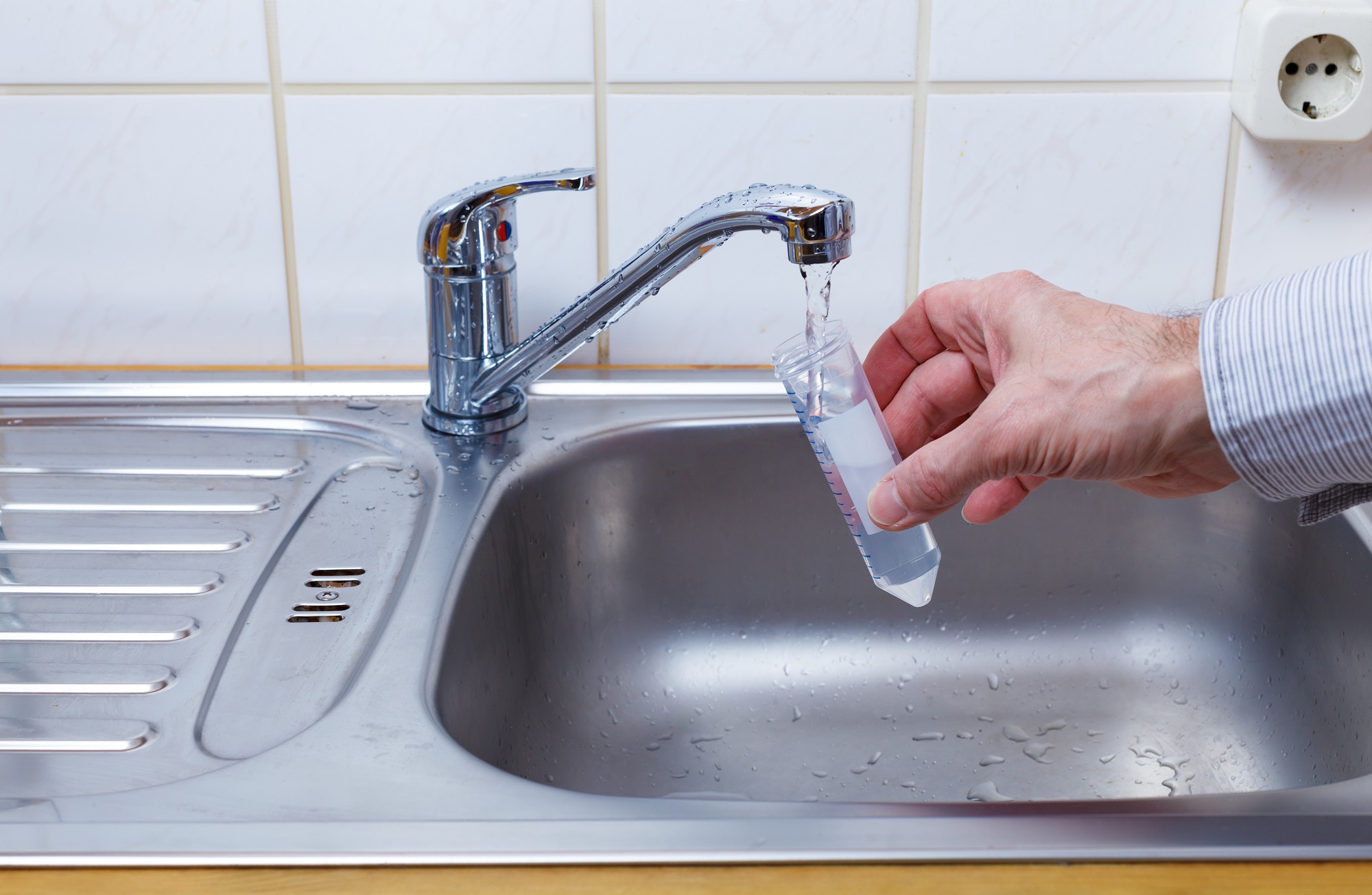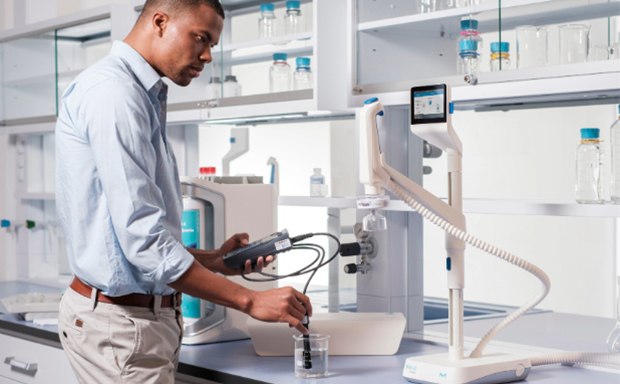Discover Trusted Water Testing Services Near Me for Tidy Consuming Alcohol Water
Wiki Article
Learn Just How Water Screening Can Find Impurities and Safeguard Your Household's Health
Comprehending the importance of water screening is crucial for securing your household's health, as our water supply can nurture unseen threats. By discovering the auto mechanics of water testing, one can discover the undetectable dangers lurking in seemingly beautiful water sources.Significance of Water Checking
Recognizing the important duty water plays in sustaining life, the value of water screening can not be overemphasized. Guaranteeing that water is cost-free from hazardous compounds is vital for keeping healthy communities and environments. Well water testing services.Water testing acts as a positive procedure to determine potential risks that may compromise water quality. Via systematic analysis, it aids discover physical, chemical, and biological criteria that can present risks to human health. Regular screening permits the early detection of issues, helping with timely treatments to avoid prevalent contamination and linked health and wellness troubles.
Furthermore, water testing sustains regulative conformity, guaranteeing that water suppliers fulfill well-known security requirements and guidelines established by governmental authorities. It promotes transparency and accountability, constructing public count on the supply of water system. Testing offers valuable information that informs water management approaches, allowing lasting usage and preservation of this precious source.
Basically, water screening is a crucial device that safeguards public health, ensures regulatory adherence, and advertises the lasting administration of water resources. Its value in safeguarding both individuals and areas can not be undervalued.
Common Water Impurities
Among the different aspects that can jeopardize water top quality, usual water contaminants include an array of physical, chemical, and organic compounds that position substantial risks to human health and the setting. Physical contaminants typically include debris or natural materials put on hold in water, which can influence quality and taste.Biological pollutants, mostly microorganisms, viruses, and protozoa, develop from human and animal waste going into water systems. Pathogens such as E. coli, Giardia, and Cryptosporidium are notorious for causing gastrointestinal illnesses and can be especially harmful to children, the elderly, and those with compromised body immune systems. Nitrites and nitrates, commonly coming from fertilizers, pose another health threat, particularly to infants, possibly bring about problems like methemoglobinemia or "blue infant syndrome."
Furthermore, arising pollutants, including drugs and personal treatment products, have actually increased issues because of their persistence and unidentified long-lasting effects. Comprehending these pollutants is vital for carrying out effective water treatment strategies and making certain risk-free alcohol consumption water.
Just How Water Screening Works
Recognizing the spectrum of impurities in water emphasizes the significance of reliable testing methods to secure public health. Water screening is a methodical procedure developed to determine and evaluate various contaminations that might pose dangers to human health. This entails a collection of analytical procedures that spot impurities such as bacteria, heavy steels, organic chemicals, and various other pollutants. The testing process commonly begins with example collection from the water resource, guaranteeing that examples are representative and unpolluted throughout the collection process.When examples are accumulated, they undertake research laboratory analysis utilizing various methods. Chemical screening usually involves spectrometry or chromatography, both of which can identify and gauge certain chemical substances. For microbiological screening, approaches such as membrane layer purification or enzyme substratum tests are used to discover pathogenic bacteria. In addition, physical features like turbidity, ph, and shade are evaluated to give understanding right into the overall top quality of the water.
The exact techniques utilized in water testing rely on the details impurities of issue and the water's intended use. By continually using these extensive testing procedures, scientists and public health authorities can ensure the security and quality of water, therefore shielding neighborhoods from possible health hazards.
Picking the Right Test
Just how does one figure out the most appropriate water test for their demands? Selecting the ideal test includes understanding both the specific attributes of the water resource and the possible pollutants that might be existing. The primary step is assessing the water resource-- be it municipal, well, or surface water-- as each has distinctive risks. Metropolitan water may call for screening for disinfectant byproducts, while well water may need screening for nitrates, germs, and hefty metals.Following, consider environmental factors and current events. Neighboring agricultural tasks might necessitate screening for herbicides and chemicals, whereas industrial areas might call for look for chemical pollutants. Additionally, any changes in water taste, smell, or appearance should motivate details testing for typical impurities like lead, chlorine, or organic pathogens.
Specialist water screening solutions supply thorough sets that target a large range of prospective pollutants. These sets typically line up with requirements set by the Epa (EPA) or local health and wellness departments. For an extra tailored approach, seeking advice from a water high quality professional can provide understandings into which details examinations are required based upon regional concerns and specific health and wellness needs, making certain the security of your house's wellness.

Preserving Water Safety

Along with testing, proper maintenance of water systems plays an essential function. This includes servicing and checking pipes systems, storage tanks, and septic systems to avoid leaks or backflow that can introduce pollutants - Water Testing Service. Utilizing water filtration systems designed to attend to specific regional issues can further guard versus pollutants, offering an additional layer of defense
Public recognition and education and learning are similarly vital in maintaining water security. Communities need to be notified concerning possible dangers related to neighborhood water sources and the needed steps to minimize them. Motivating public participation in water safety initiatives promotes a collective duty that enhances overall performance.
Eventually, a comprehensive strategy that integrates regular screening, system maintenance, and area involvement is essential in protecting water quality. By doing so, family members can be assured of tidy and safe water, shielding their health and wellness and health.

Conclusion
Routine water testing is necessary for identifying contaminants such as bacteria, heavy metals, and chemicals that pose health risks. By examining water examples, hidden dangers can be identified, ensuring the arrangement of risk-free drinking water.Comprehending the importance of water testing is vital for protecting your family's health, as our water supply can nurture hidden dangers.Water testing offers as an aggressive step to recognize possible threats that may compromise water top quality.In addition, water screening sustains regulative compliance, making certain that water service providers meet recognized safety criteria and guidelines set by governmental authorities. Metropolitan water may Water Testing Service need testing for disinfectant results, while well water may require testing for nitrates, germs, and heavy steels.
Routine water testing is an essential part in preserving the top quality of water sources, making it possible for prompt treatments before pollutants reach harmful levels.
Report this wiki page